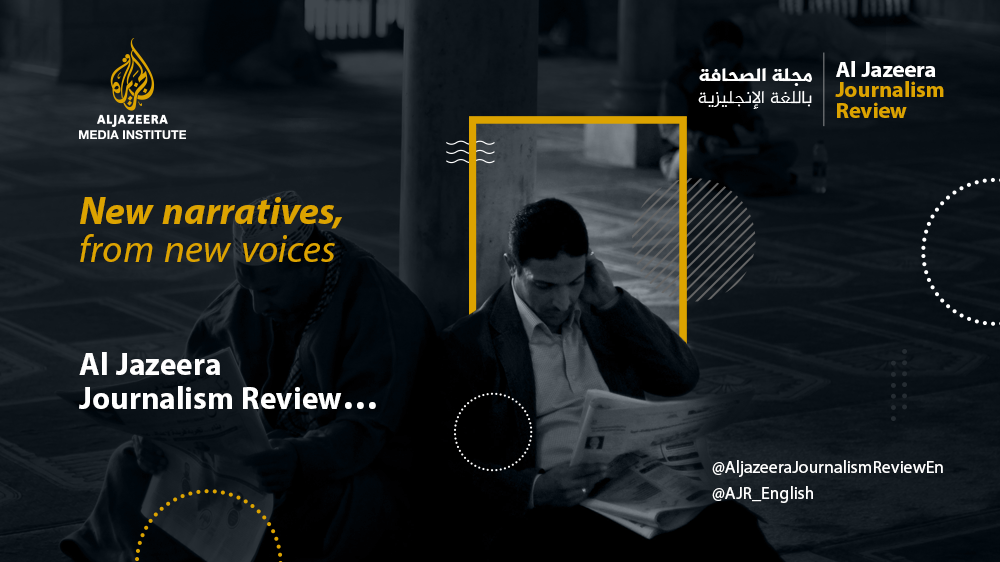When Al-Jazeera was founded in the late nineties, it began with the motto “the opinion and the other opinion.” This was less a statement of editorial balance—as one opinion, the mainstream opinion of Western media institutions and Arab state broadcasters, was already known—and more a pledge to also provide coverage to the opinion of the “other,” so often ignored.
Today, Al Jazeera’s mission remains the same and is all the more pressing in the current political context. A wave of populism has swept the world and the revolutionary optimism of the last decade has been crushed by a resurgence of authoritarian regimes. The widespread adoption of the internet has not democratized the flow of information as promised, but instead fragmented it and provided a space for coordinated disinformation campaigns.
In the wake of this political climate, Al Jazeera Journalism Review (AJR) has launched an English-language platform, expanding from its Arabic-only magazine. By providing an English platform, we hope to engage a wider audience outside of the Arab World, in service of our mission to support media practitioners in their pursuit of truth, especially those in the Global South.
Though journalists the world over are facing unprecedented challenges, it is those in the Global South who are the most vulnerable. Conversely, they are also the least represented in discussions about the state of the media. Press in the Global South often face direct threats to their physical safety while not enjoying the same protection a robust civil society offers journalists in the west.
The structural challenges facing journalists in the Global South influence the types of coverage they can offer. How can journalists perform data journalism in contexts where little data is available, and what data exists is unreliable? How can journalists working in authoritarian contexts maintain their independence when doing so might cost them their freedom, or even their lives? Too often these journalists have suffered through training workshops put on by a well-meaning NGO, knowing that very few of the techniques offered could ever apply to their work.
Fundamentally, journalists in the Global South are operating in a unique cultural and political context—discussion of their work needs to reflect that.
To that end, AJR is decentering the debate about journalism and providing a forum where new voices can speak about their own experiences, needs, and opinions about media. This is not to say western journalists are not welcome to contribute to this platform; in fact, the opposite is true. They are a fundamental part of this discussion and the continual exchange of ideas that it entails. However, AJR will emphasize local voices and experiences, rather than present top-down descriptions of their societies from outside actors.
With that—let us start the conversation.
You can follow us on Twitter: @AJR_English











































